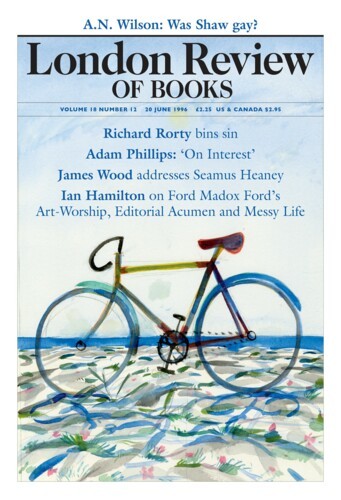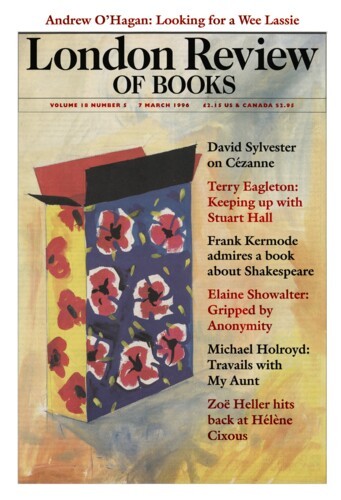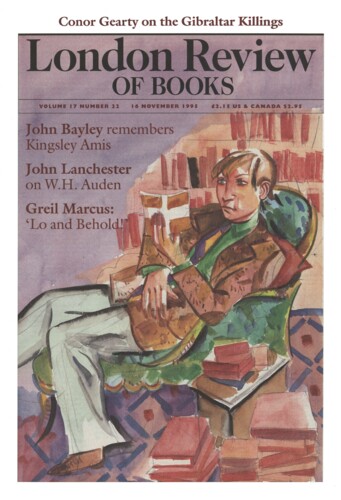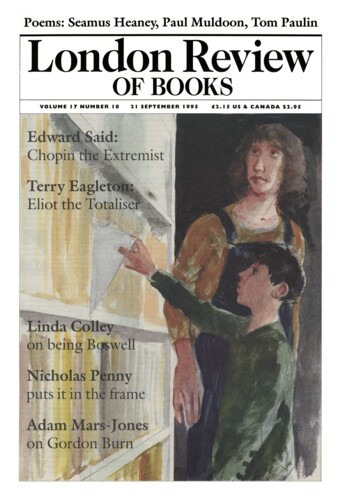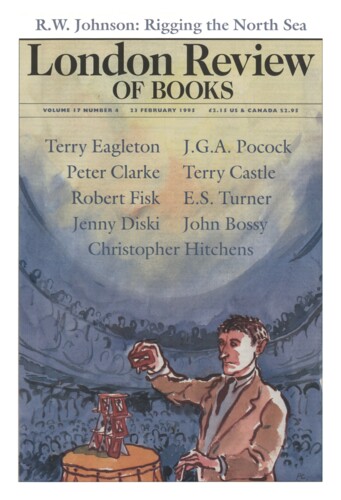Homelessness
Terry Eagleton, 20 June 1996
In the days of F.R. Leavis, English literary criticism was wary of overseas, a place saddled with effete, Latinate languages without pith or vigour. Proust is relegated to a lofty footnote in Leavis’s The Great Tradition; one of the few foreign writers approved by the Scrutineers, apart from those like James and Conrad who had had the decency to settle in the Home Counties, was Tolstoy, who could be read as a kind of D.H. Lawrence without the sex and the mines.
